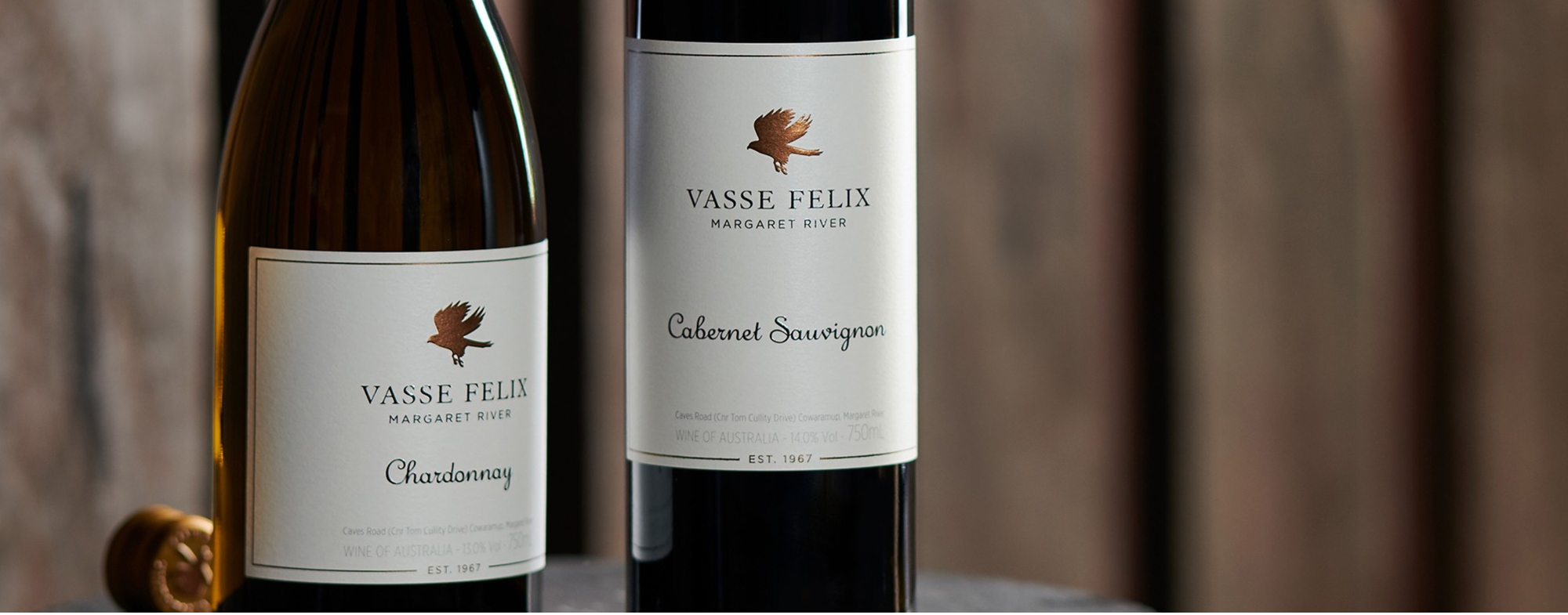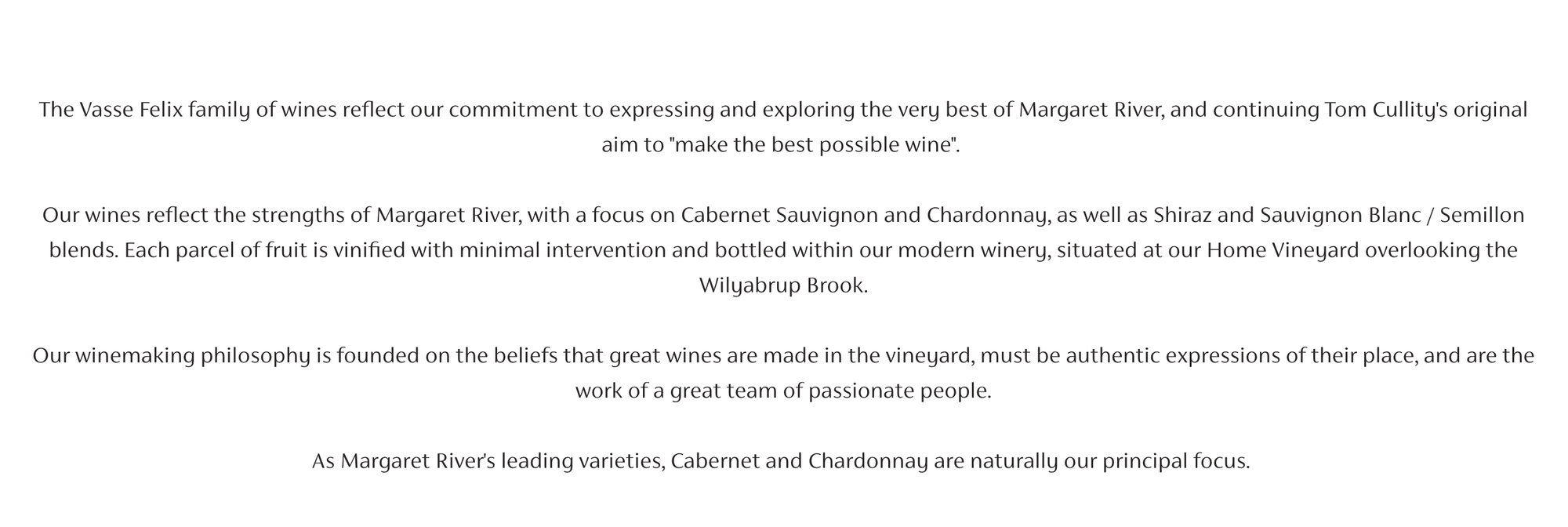South African wines vs. Australian wines
How two different wine regions tend to approach the marketing of their products.
If you visit a wine farm in South Africa - good ones and bad ones - you will usually be presented with huge range of wines all under the same estate label.
Sometimes even the smallest estates will have a Cabernet, a Pinotage, Shiraz, Merlot, Pinot Noir, Sauvignon Blanc, Chardonnay - at the very least.
South African wine producers love diversification; the theory is that you spread your commercial risk across a big range of options. But what ends up happening 'in their love of spreading the risk', is that maybe one varietal will be decent...and the rest just fill the page on the tasting sheet.

Australian wines
A few years ago - while in Western Australia - we went to Vasse Felix in the Margaret River region. Their approach to wine making and marketing was quite different. Rather than offering a full, diverse range of wines, they chose instead to just focus on the few varietals that they were sure that they could successfully make well; Cabernet Sauvignon and Chardonnay, as well as Shiraz and Sauvignon Blanc / Semillon blends.
As much as we didn't want them to be, they were bloody brilliant. Expensive, but unbelievably good. It might be that we are making a gross generalisation regarding the approaches in these two regions, but our overall perception as to how wine marketing is done in each still rings true.
This simple story illustrates a useful point about strategy.
Good strategy involves carefully identifying the best possible focus area to direct attention and capital towards. It's all about making tough choices, choosing one direction over all the other options available and then diligently throwing everything you have at that one, single-thing that makes you completely different to all the other players in the marketplace.
And this is exactly what makes strategy work so very difficult - making these kinds of choices, where you reject the majority of the options that are available and focus just on where you believe there to be advantage, is extremely challenging. Most business leaders are just not able to bring themselves to committing in this way. But in the absence of strategic choice there is a lack of distinction which tends to neutralise effort and progress.
Do yourself a favour and read the so-called strategy statements posted by big listed companies in their annual reports and you'll have hard proof that even the most overpaid executives have no cooking clue as to what strategy actually is. It's either that or they simply don't have the power or the influence to make focused choices or they are not willing to do the hard work of critical decision making.
In contrast to this, this statement on the Vasse Felix site sums focus up well:

They're not trying to make a wine for every occasion, just the best based on the strengths that are available to them.

